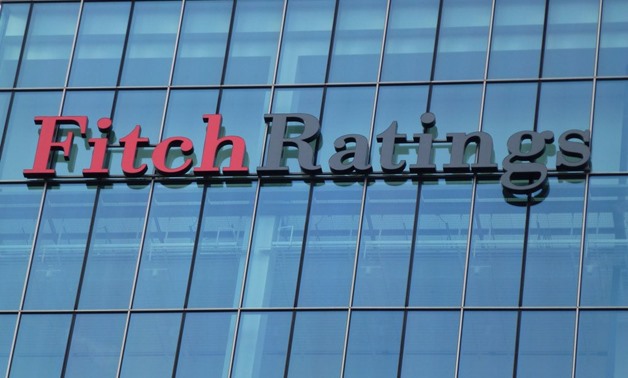
Fitch Ratings- SolvencyIIWire- via Flickr
CAIRO – 17 May 2020: Fitch Rating said Thursday Egypt’s renewed engagement with the International Monetary Fund (IMF) will boost investors confidence in the economy.
It clarified that Egypt's risk indicators have moderated since March; yields on 10-year dollar bonds spiked to around 12 percent in mid-March, but settled to 8 percent-8.5 percent in early May.
“Egypt would have been looking to issue around $5 billion in Eurobonds in 2020, prior to the shock,” it noted.
Fitch said that IMF financing will provide some support for Egypt's (B+/Stable) foreign reserves and portfolio flows may be stabilizing, but the ongoing coronavirus pandemic shock could further pressure reserves, especially if the rigidity of the exchange rate persists.
Egypt received $2.8 billion under the IMF's Rapid Financing Instrument (RFI) and has requested funds under a Standby Agreement (SBA), which could release another $4 billion over a year.
Egypt returned to IMF in 2020 after finishing its 2016’s program with the same entity. In November 2016, the Executive Board of the IMF approved a $12 billion loan as a financial assistance to Egypt to support the Egyptian economic reform program. Upon the board's approval in November, Egypt embarked on a bold economic reform program that included floating its currency, losing around 50% of its value, as part of the economic reform program which imposed taxes, including the value-added tax (VAT), and cut energy subsidies, all with the aim of trimming the budget deficit.
Fitch clarified that the shock the economy received because of coronavirus worsened the external liquidity position by at least $23 billion in March-April 2020.
“The central bank's official reserves, together with other deposits not included in reserves, declined by USD6 billion in both March and April. The banking sector's foreign assets fell by USD10.5 billion in March (data for April are not yet available), pushing the sector into a net foreign liability positon,” it added.
According to Fitch, the gross foreign reserves of the Central Bank of Egypt (CBE) are still substantial, totaling $37 billion at end-April. Other deposits not included in reserves were $3.2 billion.
The rating agency projected gross foreign reserves to decline to $31 billion in 2020 (4.5 months of current external payments), with the current account deficit widening by $10 billion, to 5.3 percent of GDP. “Remaining foreign holdings of treasury bills were equivalent to $9.5 billion at end-March,” it added.
The pandemic is denting Egypt's external receipts, in particular, tourism earnings and, probably, remittances, according to Fitch, clarifying that foreign holdings of local-currency treasury bills tumbled by $10.5 billion in March.
“The bulk of portfolio outflows will have gone through the banking sector, but the CBE covered some legacy repatriation mechanism flows and may have sold foreign currency in the market to support the exchange rate. The CBE also used reserves in April to meet $1.6 billion of external obligations, including a $1 billion government bond repayment,” it said.
According to the ratings agency, monetary and fiscal policy will play an important part in how Egypt weathers the crisis and in any agreement on an SBA with the IMF. “Monetary policy has remained cautious since the end of the previous IMF programme, with the CBE maintaining comfortably positive real interest rates. However, an SBA is likely to bring renewed focus on exchange-rate flexibility, especially if foreign reserves remain under pressure. The Egyptian pound, which appreciated by 11 percent against the US dollar in 2019, has shown minimal volatility so far in 2020, despite the shock.”
Fitch saw that there seems to be concern at the CBE and among banks, including large state-owned banks, that exchange-rate depreciation would aggravate outflows from local-currency bond markets, increase deposit dollarisation (17 percent in February) and harm capital ratios. Inflation, which typically weighs on policymakers' minds, has fallen considerably, averaging less than 6 percent in January-April 2020.
“However, the rigid exchange rate could prove a catch-22 if a perception of currency overvaluation risks stymying renewed portfolio inflows and other inflows until some depreciation has occurred. This was a cause of foreign-currency shortages in 2014-2016,” it added, noting that Egypt's external finances are in better shape now and the economy far less imbalanced.
“The Egyptian pound has appreciated in real effective terms, eroding a chunk of the competitiveness gains from the 2016 devaluation and greater exchange-rate flexibility would be positive for the sustainability of Egypt's external finances,” it expected.

Comments
Leave a Comment